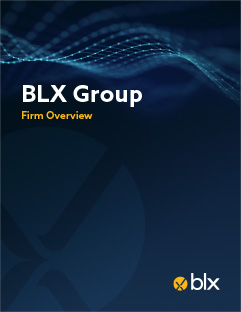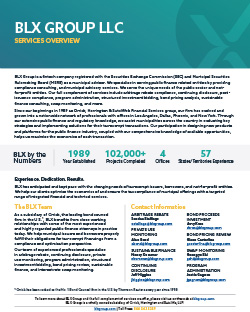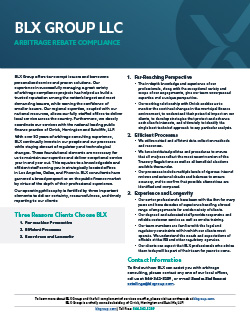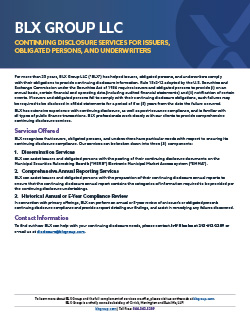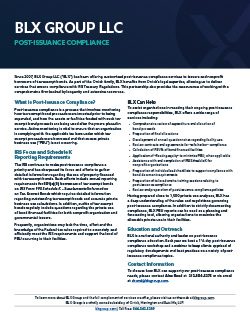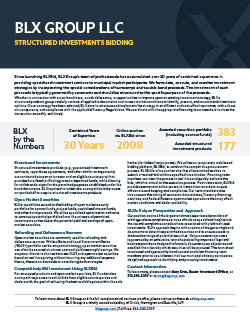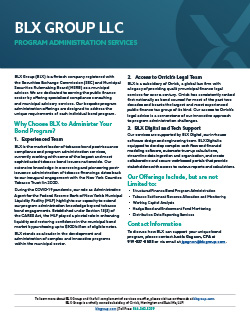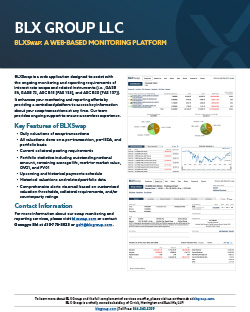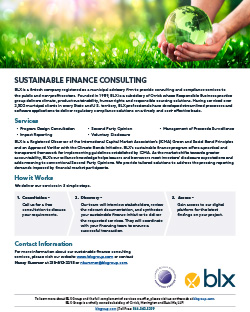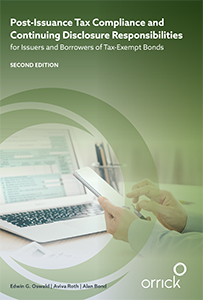Tax Alert - IRS Management Contract Rule Update February 2017
IRS UPDATES RULE FOR MANAGEMENT CONTRACTS AGAIN
FEBRUARY 3, 2017
The Internal Revenue Service has released helpful supplementary guidance on the safe harbor requirements for contracts for services performed in tax-exempt bond-financed facilities. Management contracts and other use agreements may give rise to private business use, which in the aggregate cannot exceed 10% per bond issue for governmental bonds and 5% per bond issue for qualified 501(c)(3) bonds. As detailed below, Revenue Procedure 2017-13 (“Rev Proc 2017-13”) confirms that certain common forms of compensation for management services will not give rise to prohibited “net profits” arrangements and offers certain other clarifications and modifications to the guidelines set forth last year in Revenue Procedure 2016-44 (“Rev Proc 2016-44”).
As described in our summary of Rev Proc 2016-44, released on August 22, 2016, the Internal Revenue Service eliminated long-standing safe harbors involving length of term, termination rights, and limits on non-fixed compensation set forth in Revenue Procedure 97-13, as amplified by Notice 2014-67 (“Rev Proc 97-13”). In their place, Rev Proc 2016-44 set forth a series of principle based tests that, despite new flexibility, raised concerns among issuers, conduit borrowers, and practitioners. The additional guidance set forth in Rev Proc 2017-13 should calm much of that anxiety.
The effective date of Rev Proc 2017-13 is January 17, 2017, but issuers and borrowers may choose to apply it to contracts entered into before January 17, 2017. In addition, as also set forth in Rev Proc 2016-44, issuers and borrowers may apply the safe harbor guidance of Rev Proc 97-13 to a contract entered into before August 18, 2017, provided it is not materially modified or extended on or after August 18, 2017 (other than pursuant to certain legally enforceable renewal options).
Survival of Rev Proc 97-13 Safe Harbors. Rev Proc 2017-13 specifically states that contracts with compensation consisting of any combination of (a) a capitation fee, (b) a periodic fixed fee, (c) a per unit fee, and (d) an incentive fee based on quality of service, performance or productivity will not be treated as providing the service provider with a prohibited share of net profits, regardless of whether the service provider pays expenses with the respect to the managed property. This provision of Rev Proc 2017-13 provides assurance that the most commonly used safe harbors of Rev Proc 97-13 remain in effect. The terms “capitation fee,” “periodic fixed fee” and “per unit fee” are defined in Rev Proc 2017-13 and generally track the definitions of Rev Proc 97-13.
Timing of Payments to Service Provider. Rev Proc 2016-44 states that the timing of compensation payments must not be contingent upon net profits or net losses from the managed property. To clarify the meaning of this requirement in the event of insufficient cash flows from managed property, Rev Proc 2017-13 provides that timing of payment will not be an issue if the contract requires: (a) annual payment, (b) penalty amounts (e.g., reasonable interest fees) for late payment, and (c) any deferred compensation and penalty amounts be paid within 5 years of the original due date of the payment.
Approval of Rates. Rev Proc 2016-44 mandates that a qualified user approve rates charged for use of the managed property. Clarifying the level of detail required for such approvals, Rev Proc 2017-13 states that a qualified user may satisfy the requirement by either (a) approving a reasonable general description of the rate-setting method or (b) requiring that rates be reasonable and customary as specifically determined by, or negotiated with, an independent third party.
Financed Land and Contract Term. Rev Proc 2016-44 specifies that the term of a contract may not be longer than the lesser of 30 years or 80% of the useful life of the managed property, but indicates that land shall not be taken into account with respect to the 80% test. Rev Proc 2017-13 modifies this language and provides that land shall be treated as having a useful life of 30 years, but only if 25% or more of net proceeds of the applicable bond issue were allocated to land.
While Rev Proc 2017-13 is generally helpful and fills in some of the gaps created by Rev Proc 2016-44, issuers and borrowers will need to carefully navigate these principle-based concepts to ensure that service contracts do not result in private business use.
Click here to view Rev Proc 2017-13.
For more information on how Rev Proc 2017-13 could impact your organization or for other questions on post-issuance tax compliance, please contact:
Alan Bond
[email protected]
(212) 506-5275
or
[email protected]
(866) 342-5259


